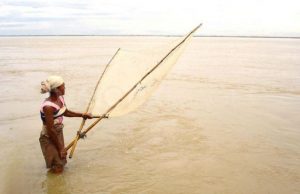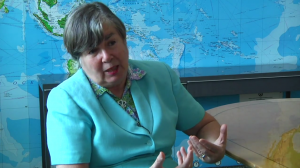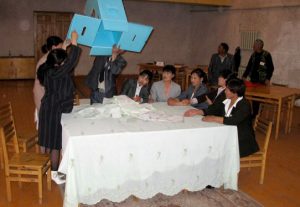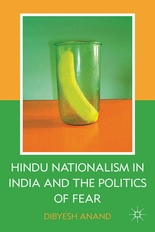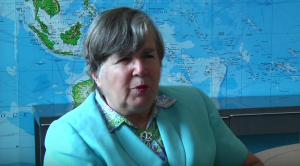The Republic of China: Restoring a Father’s and a Nation’s Life Story
Memo #167 – One of the most famous modern Chinese writers, Pai Hsien-yung [Bai Xianyong白先勇], has just brought out a photo-biography of his father, Pai Chung-hsi [Bai Chongxi 白崇禧]. The book, Father and the Republic, was published in spring, 2012 simultaneously in Taiwan, Hong Kong, and China—a breakthrough, a transcendence of political barriers.
Public Outreach Grant
Memo #166 – We are thrilled to announce that Asia Pacific Memo (APM) has been awarded a grant that will allow it to develop visualizations and expand its audience in a targeted manner.
Japan and South Korea’s History Divide
Memo #165 – Despite the United States’ shift in strategic attention to the Asia Pacific, fiscal constraints and defence spending cuts highlight the need for greater military cooperation among Asian partner countries. There are myriad security issues in the region. Japan and South Korea, the two key US allies in Asia, are significant actors in this context. But enhanced defence cooperation continues to be hampered by controversies regarding Japan’s history of aggression on the Korean peninsula. In mid-May, Seoul cancelled the planned signing of two military accords with Tokyo, citing domestic criticism on any military pact amid unresolved bilateral history issues.
Managing South Asia’s Himalayan Rivers: A Human Development Framework
Memo #164 – What would an ideal regulatory system to manage an international river look like? Some have called for an innovatively designed regulatory authority for international rivers, such as the Ganga-Brahmaputra river system in the Himalayan region. Existing models are not compatible with the geopolitical conditions in South Asia. Rather than furthering traditional nationalist approaches, the new design must take into account the people living in the region.
Indonesia’s Unconsolidated Democracy: Prelude to 2014
Memo #163 – The “Indonesia Model,” the post-1998 political transformation and institutional reform process during which Indonesia’s primarily Muslim society shed the shackles of authoritarianism, is considered an exemplar for Arab Spring countries transitioning to democracy. But transition marks only the beginning: consolidation occurs when liberal institutions and democratic norms are fully embedded.
Canada-China Education Projects (Video Interview with Dr. Ruth Hayhoe) (Part 2/2)
Memo #162 – In part two of our interview Dr. Hayhoe provides insight on how the next generation can learn from previous Canada-China education projects. She discusses what Canadians can gain from the Confucian tradition of education, analyzes Hong Kong’s education system in response to influences from mainland China, and shares her goals for the project.
Mongolian Election: Bumpy Road, but Heading in the Right Direction
Memo #161 – Elections are milestones in democratic development. With the closing of nominations on June 6, 2012, the campaign for the Mongolian parliamentary election officially opens. Observers seem pessimistic about Asia’s only post-socialist democracy. But the upcoming election promises to be more carefully organized and transparent, and public discussions of corruption will strengthen democracy.
Hindu Nationalism is the Biggest Security Threat to India
Memo #160 – India portrays Islamic radicalism, ethnic separatism, and the left-wing Naxalite guerrilla movement as security threats. But it is Hindu nationalism (Hindutva) that generates most hatred and violent conflicts amongst Indian citizens; it is not able to support India as a multi-religious and multi-ethnic state.
Canada-China Education Projects (Video Interview with Dr. Ruth Hayhoe) (Part 1/2)
Memo #159 (Video) – In this interview, based on a lecture at The University of British Columbia in May 2012, Dr. Hayhoe reflects on the arc of previous Canada-China education projects, Canada’s legacy, and mutual learning and lessons for each state partner
Drivers’ Education in Japan: Personality Tests and ‘Road Rage?’
Memo #158 – There is no Japanese equivalent for the term “road rage.” Yet Japanese psychologists and the public are aware of the emotional dimensions of driving. A 2001 article in the Japan Automobile Association’s monthly magazine discusses the propensity of some for angry driving (ka ka unten). Since 1996, Japanese automobile insurance rates have been adjusted to penalize drivers who cause accidents. But such neoliberal forms of governance have not replaced forms of moral suasion and self-reflection that have a long history in Japan.

